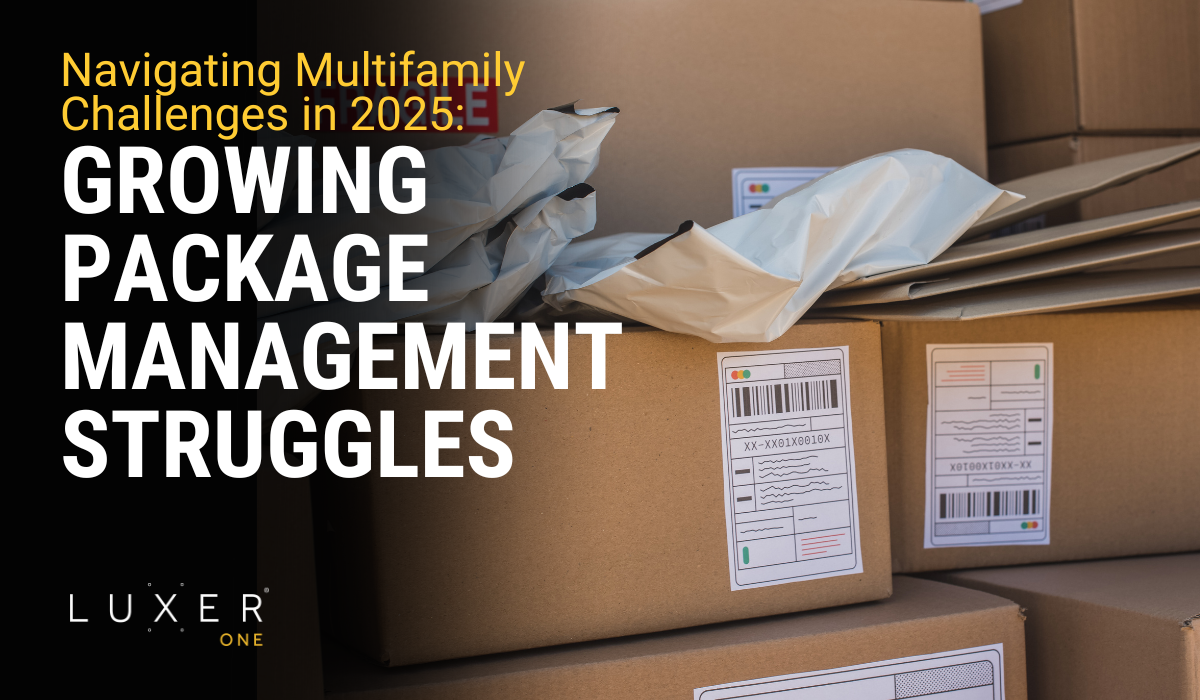E-commerce is booming like never before. In 2023, the global B2C e-commerce market reached a staggering $4.8 trillion, and it’s projected to nearly double to $9 trillion by 2032. With a steady 7% growth rate expected over the next three years alone, the flood of online orders shows no signs of slowing down.
For multifamily communities, this surge in e-commerce brings a major challenge: package management. Property managers across the industry are struggling to keep up with the ever-increasing volume of deliveries, often spending hours each day sorting and distributing packages instead of focusing on more critical responsibilities.
The Package Problem: A Drain on Resources and Resident Satisfaction
As package volumes grow, so do the inefficiencies in managing them. Many properties still rely on outdated systems—manual package logs, overcrowded mailrooms, or front office staff juggling deliveries. This leads to:
- Lost or misplaced packages, resulting in frustrated residents and increased liability for property managers.
- Time-consuming handling processes, pulling staff away from high-priority tasks like leasing and resident engagement.
- Limited space for package storage, leading to cluttered lobbies and potential security risks.
Beyond the operational headaches, poor package management has a direct impact on resident satisfaction. With more renters prioritizing convenience and security in their living experience, the inability to efficiently receive deliveries can be a deal-breaker.

The Smart Solution: Automated Package Management
To keep up with this growing challenge, many multifamily communities are turning to smart lockers and automated package rooms as a solution. Luxer One, a leader in package management technology, offers innovative solutions that streamline the entire process, enhancing both operational efficiency and resident experience.
How Smart Lockers and Package Rooms Make a Difference
✔ 24/7 Secure Access: Residents can retrieve their packages on their schedule, eliminating dependency on leasing office hours.
✔ Time Savings for Staff: Automated systems drastically reduce the time property managers spend handling deliveries, allowing them to focus on core responsibilities.
✔ Organized and Secure Storage: No more cluttered package rooms or lost deliveries—every package is safely stored and accounted for.
✔ Enhanced Resident Experience: With hassle-free package retrieval, properties can offer a key amenity that improves satisfaction and retention.

Future-Proofing Package Management
The e-commerce boom is here to stay, and multifamily communities must adapt to meet resident expectations. Smart package management solutions aren’t just a convenience—they’re becoming a necessity in modern property operations. By implementing Luxer One’s smart lockers and package rooms, property managers can future-proof their communities while providing a seamless experience for residents.
Learn more about how Luxer One can help your community when you contact us today!
-
Christina Draper, Marketing Content Manager at Luxer One, creates storytelling-driven content that connects with property management professionals and highlights innovations in multifamily package management. With a marketing background from UNC Charlotte, she develops cross-channel campaigns that showcase how Luxer One is redefining the resident experience.
See Posts





